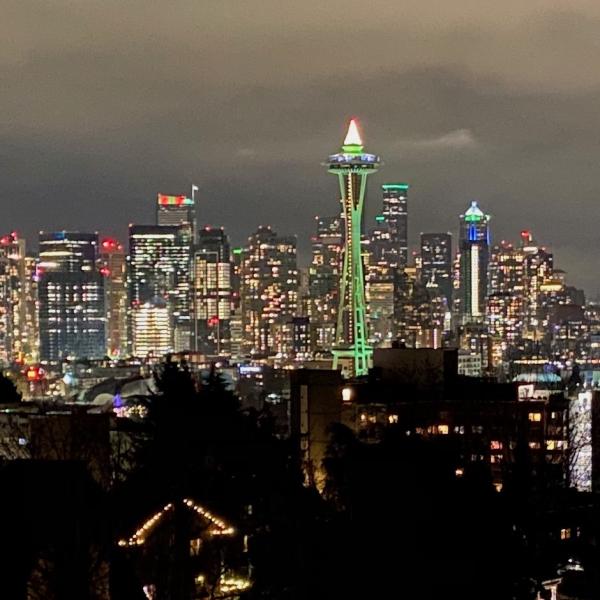
Those of us in Washington State who were hoping that 2021 would bring some respite from the massive disruption to our daily lives will have to wait. Governor Jay Inslee has canceled Christmas and New Year's, extending the state's lockdown to January 4. Earlier, he canceled Thanksgiving.
According to Crosscut, Mr. Inslee "urged people to refrain from holiday gatherings, saying that people need to remain vigilant for just a few more months until vaccines are widely available." If he is really serious about that, then he should go ahead and cancel the Fourth of July because most Americans won't be vaccinated until the summer. And if a substantial number of Americans refuse to be immunized, then the pandemic will roll on regardless if vaccines are widely available.
Mr. Inslee's arbitrary policies -- and yes, they are entirely unscientific and arbitrary, which I will demonstrate below -- have contributed to the permanent closures of nearly 2,400 restaurants and bars across Washington State. More than 600 have closed in Seattle alone, representing about 20% of the city's restaurants.
Admittedly, many of these restaurants likely would have gone out of business anyway, given that a lot of people are choosing to stay home. But the aforementioned arbitrary policies are absolutely killing any hope for many small business owners.
Unscientific, Arbitrary COVID Policies
For instance, indoor dining is banned... unless you eat indoors while outdoors. This is a photograph I took of a suburban restaurant, which got around the ban by putting up a tent. Eating indoors is unsafe. But eating inside a tent is safe. Apparently, the coronavirus doesn't like tents. (Surely, there's a peer-reviewed paper on this.)
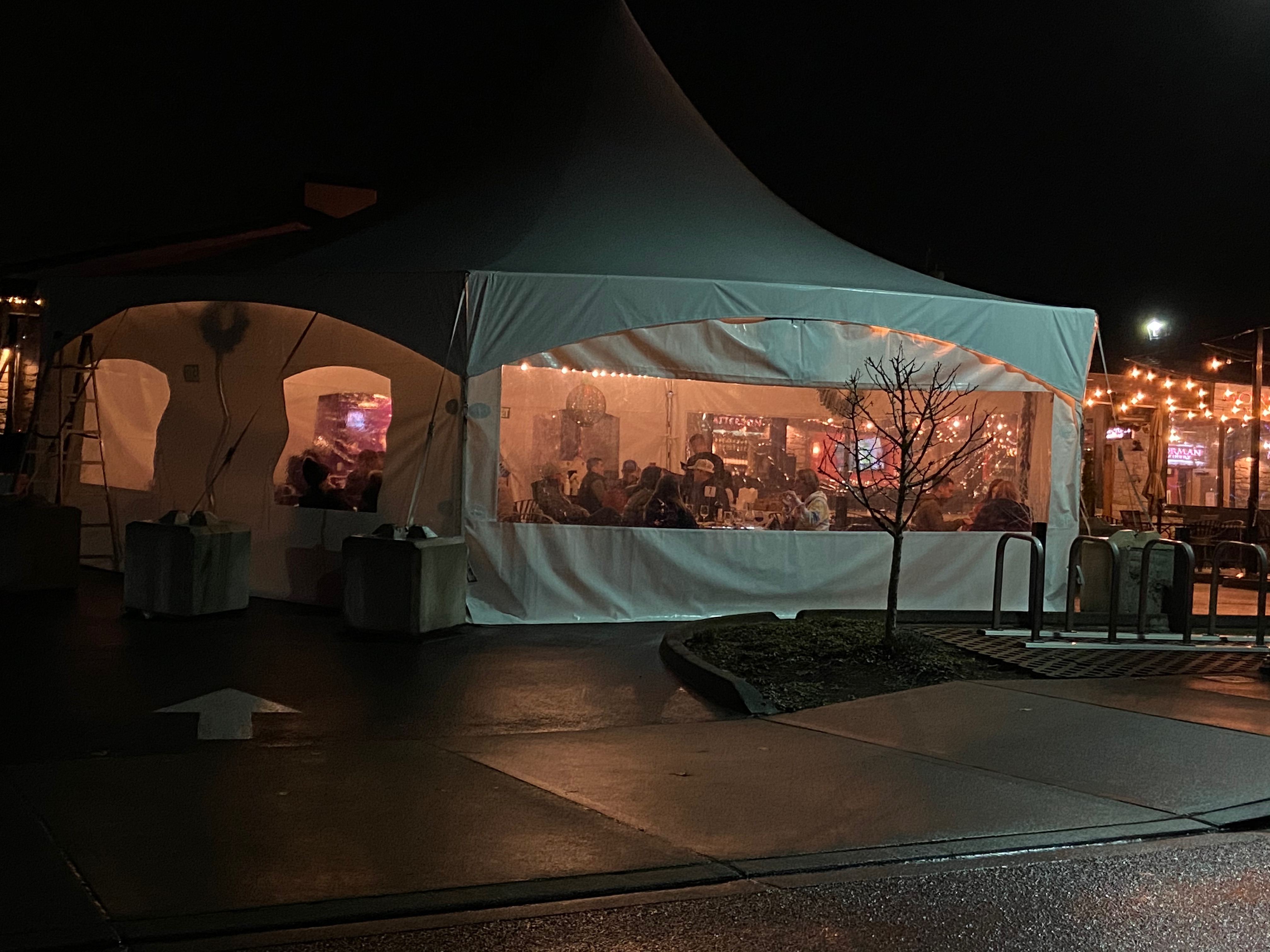
Of course, the issue isn't whether someone is in a tent. The main issue is ventilation. Indoor spaces may not be well ventilated. But then that tent doesn't look well ventilated, either.
Photographs I took inside a local mall also put on stark display the absurdity of the governor's policies. People can walk around inside the mall...
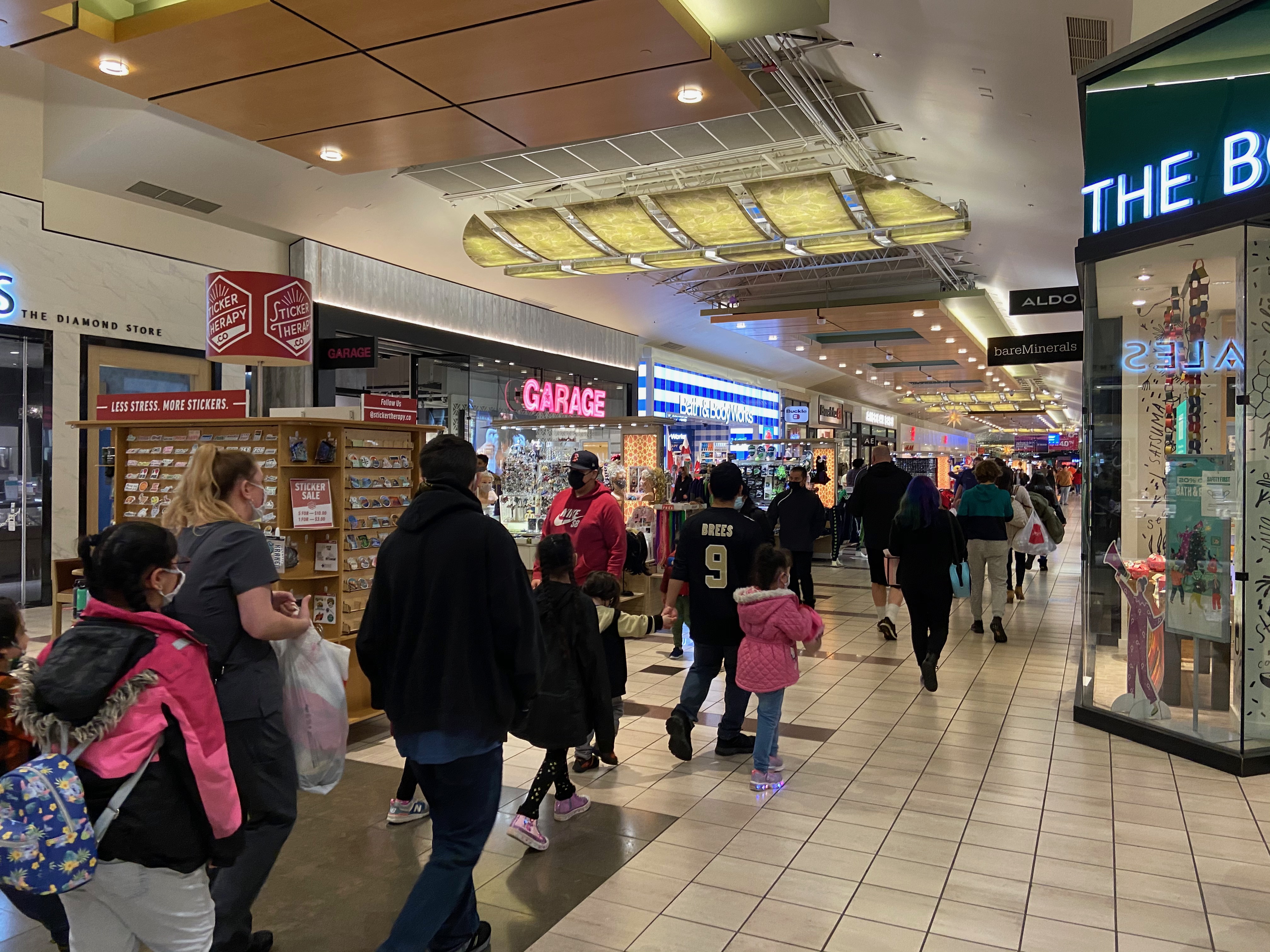
...but can't eat there...
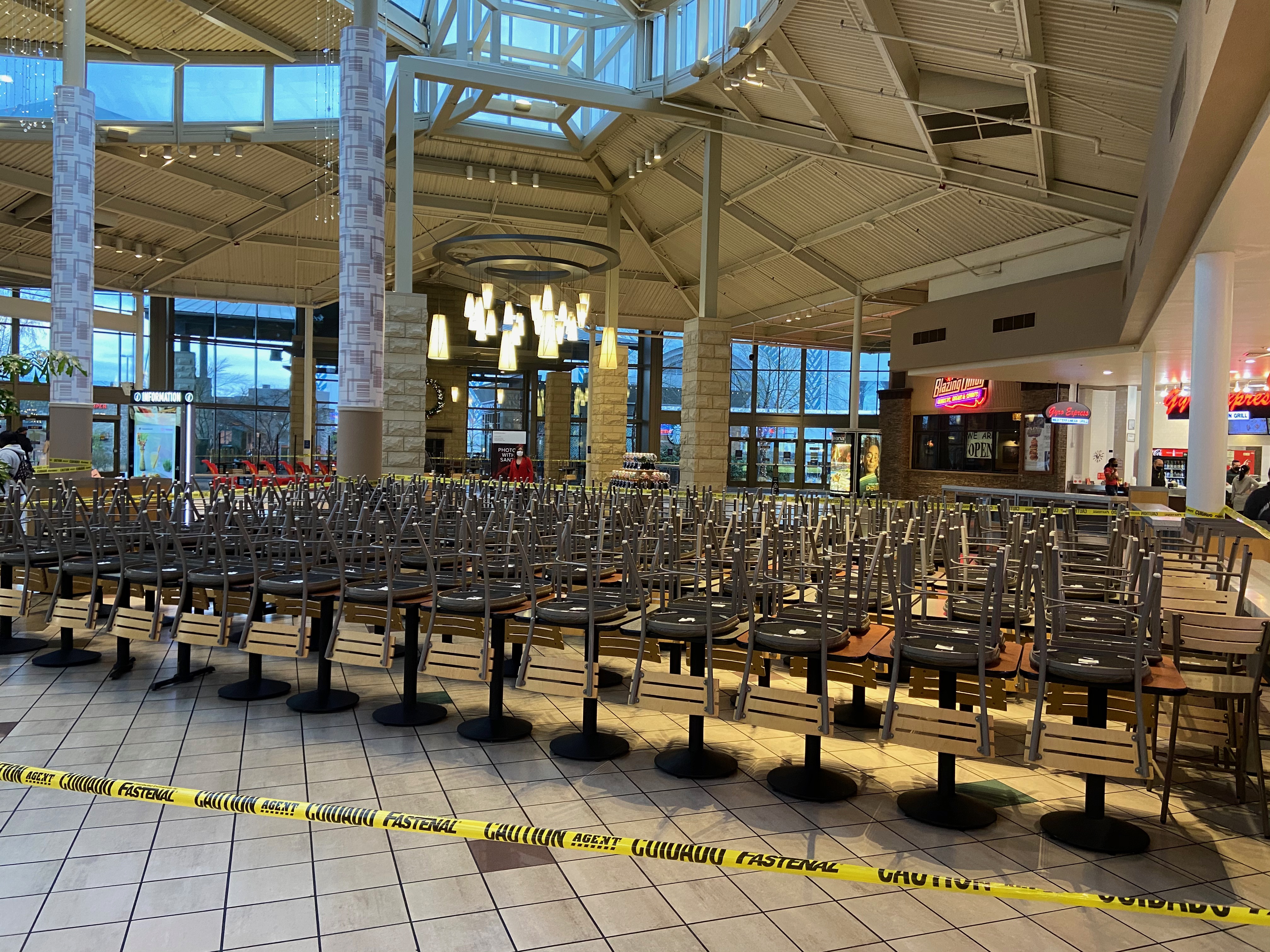
...or try on clothes there.
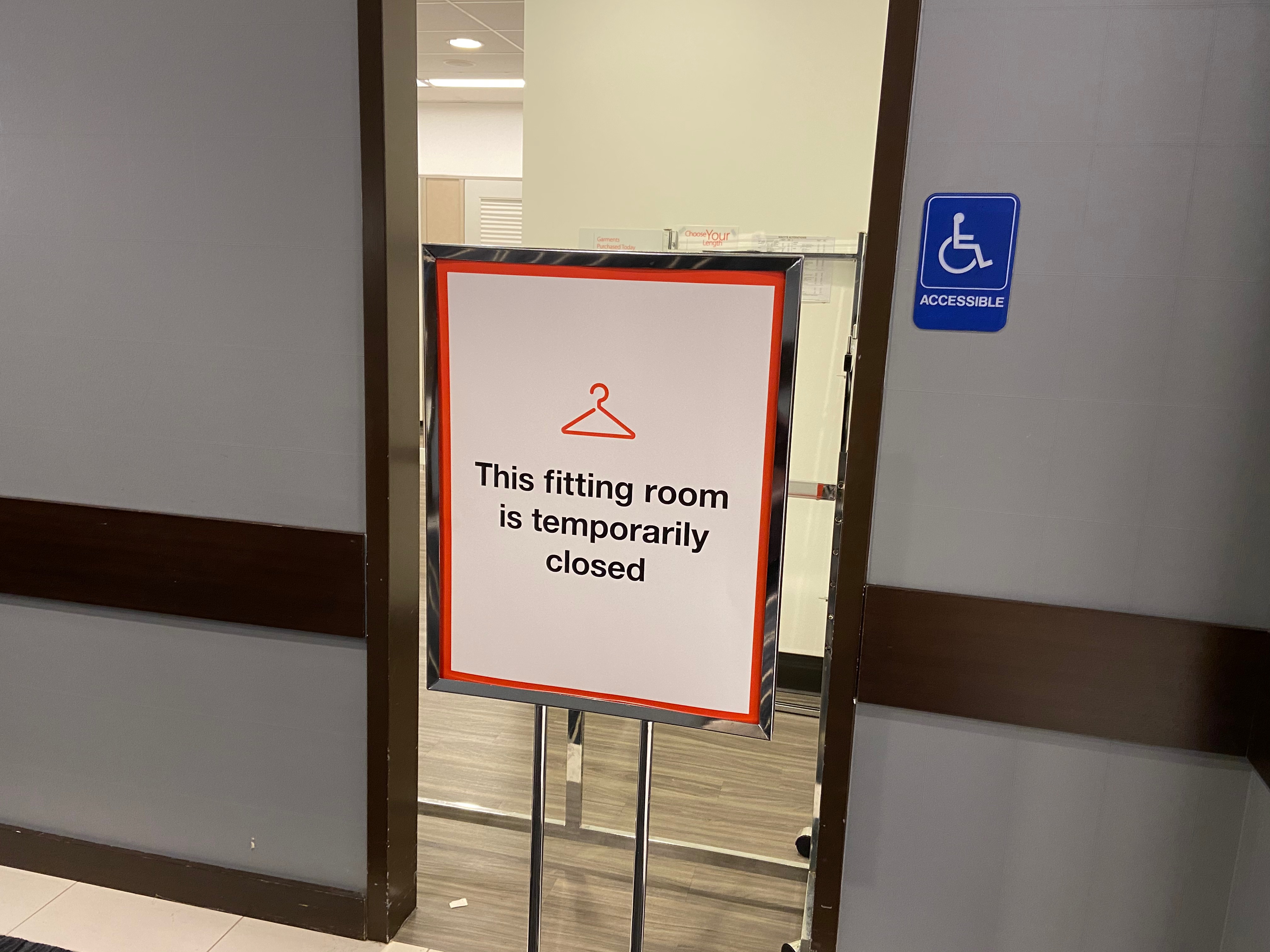
Retail stores have been restricted to 25% capacity, a number pulled completely out of thin air. Nobody monitors how many people come into the mall, so the hallways presumably can be packed with people. However, each individual store can only be at 25% capacity.
Arbitrary Policies Have Consequences
The Federalist Papers, which were authored by Alexander Hamilton, John Jay, and James Madison, speak forcibly against "arbitrary" government, especially when the judicial system acts in an arbitrary way. These brilliant thinkers believed that arbitrary laws lead to tyranny.
To be clear, I'm not arguing that restrictions meant to prevent the spread of the coronavirus will lead to a dictatorship. Some restrictions are absolutely necessary because extraordinary times call for extraordinary measures. We have to cooperate as a society to tame the virus. What I am arguing is that arbitrary laws make people really mad, and angry people don't follow the law. That can trigger a perverse effect; i.e., a policy can actually cause the very thing it is trying to prevent.
How so? Predictably, Mr. Inslee's arbitrary restrictions are causing a backlash. A restaurant in a small town in central Washington is defying the restrictions by allowing indoor dining. The result? It had one of the busiest weeks in its history. For all we know, it could also become a super-spreader event, which could be prevented if more sensible restrictions were in place.
It's difficult to criticize the restaurant for its act of civil disobedience. After all, there are probably people down the street eating inside a tent.



